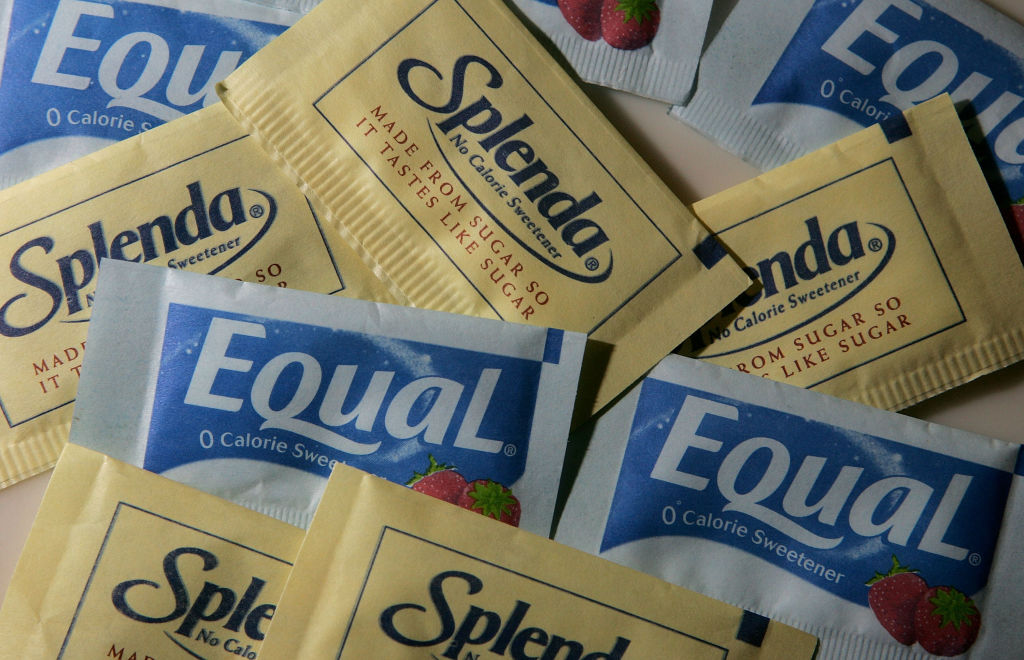Artificial sweeteners may not help with weight loss, WHO advises


A free daily email with the biggest news stories of the day – and the best features from TheWeek.com
You are now subscribed
Your newsletter sign-up was successful
The World Health Organization issued new guidance warning against using artificial sweeteners to reduce body weight or the risk of noncommunicable diseases, claiming that long-term consumption is ineffective and could pose health risks, The New York Times reported.
A systematic review of available studies suggests that using non-sugar sweeteners "does not confer any long-term benefit in reducing body fat in adults or children," the WHO posited in its recommendation. The organization also found evidence that prolonged consumption of alternative sweeteners could increase the risk of Type 2 diabetes, cardiovascular diseases, and death in adults.
The new guidelines apply to all individuals except those with pre-existing diabetes, and include "all synthetic and naturally occurring or modified nonnutritive sweeteners that are not classified as sugars found in manufactured foods and beverages or sold on their own to be added to foods and beverages by consumers," the WHO said.
The Week
Escape your echo chamber. Get the facts behind the news, plus analysis from multiple perspectives.

Sign up for The Week's Free Newsletters
From our morning news briefing to a weekly Good News Newsletter, get the best of The Week delivered directly to your inbox.
From our morning news briefing to a weekly Good News Newsletter, get the best of The Week delivered directly to your inbox.
The list of sugar substitutes includes aspartame, saccharin, sucralose, and stevia. The latest recommendations contradict previous studies that said "these sweeteners don't offer any health benefits but also do not cause harm," the Times explained.
People should consider alternatives to reducing sugar intake "such as consuming food with naturally occurring sugars, like fruit, or unsweetened food and beverages," said Francesco Branca, the WHO director for nutrition and food safety. Non-sugar sweeteners "are not essential dietary factors and have no nutritional value. People should reduce the sweetness of the diet altogether, starting early in life, to improve their health."
The International Sweeteners Association, an organization representing the industry, defended low/no calorie sweeteners as "a helpful tool to manage obesity, diabetes, and dental diseases" and called the WHO's recommendation a "disservice" to consumers. The industry association "is disappointed that the WHO's conclusions are largely based on low certainty evidence from observational studies, which are at high risk of reverse causality," it said, per an emailed statement to CNN.
A free daily email with the biggest news stories of the day – and the best features from TheWeek.com
Theara Coleman has worked as a staff writer at The Week since September 2022. She frequently writes about technology, education, literature and general news. She was previously a contributing writer and assistant editor at Honeysuckle Magazine, where she covered racial politics and cannabis industry news.
-
 Political cartoons for February 21
Political cartoons for February 21Cartoons Saturday’s political cartoons include consequences, secrets, and more
-
 Crisis in Cuba: a ‘golden opportunity’ for Washington?
Crisis in Cuba: a ‘golden opportunity’ for Washington?Talking Point The Trump administration is applying the pressure, and with Latin America swinging to the right, Havana is becoming more ‘politically isolated’
-
 5 thoroughly redacted cartoons about Pam Bondi protecting predators
5 thoroughly redacted cartoons about Pam Bondi protecting predatorsCartoons Artists take on the real victim, types of protection, and more
-
 Trump HHS slashes advised child vaccinations
Trump HHS slashes advised child vaccinationsSpeed Read In a widely condemned move, the CDC will now recommend that children get vaccinated against 11 communicable diseases, not 17
-
 Stopping GLP-1s raises complicated questions for pregnancy
Stopping GLP-1s raises complicated questions for pregnancyThe Explainer Stopping the medication could be risky during pregnancy, but there is more to the story to be uncovered
-
 Tips for surviving loneliness during the holiday season — with or without people
Tips for surviving loneliness during the holiday season — with or without peoplethe week recommends Solitude is different from loneliness
-
 More women are using more testosterone despite limited research
More women are using more testosterone despite limited researchThe explainer There is no FDA-approved testosterone product for women
-
 Climate change is getting under our skin
Climate change is getting under our skinUnder the radar Skin conditions are worsening because of warming temperatures
-
 FDA OKs generic abortion pill, riling the right
FDA OKs generic abortion pill, riling the rightSpeed Read The drug in question is a generic version of mifepristone, used to carry out two-thirds of US abortions
-
 RFK Jr. vaccine panel advises restricting MMRV shot
RFK Jr. vaccine panel advises restricting MMRV shotSpeed Read The committee voted to restrict access to a childhood vaccine against chickenpox
-
 Texas declares end to measles outbreak
Texas declares end to measles outbreakSpeed Read The vaccine-preventable disease is still spreading in neighboring states, Mexico and Canada
